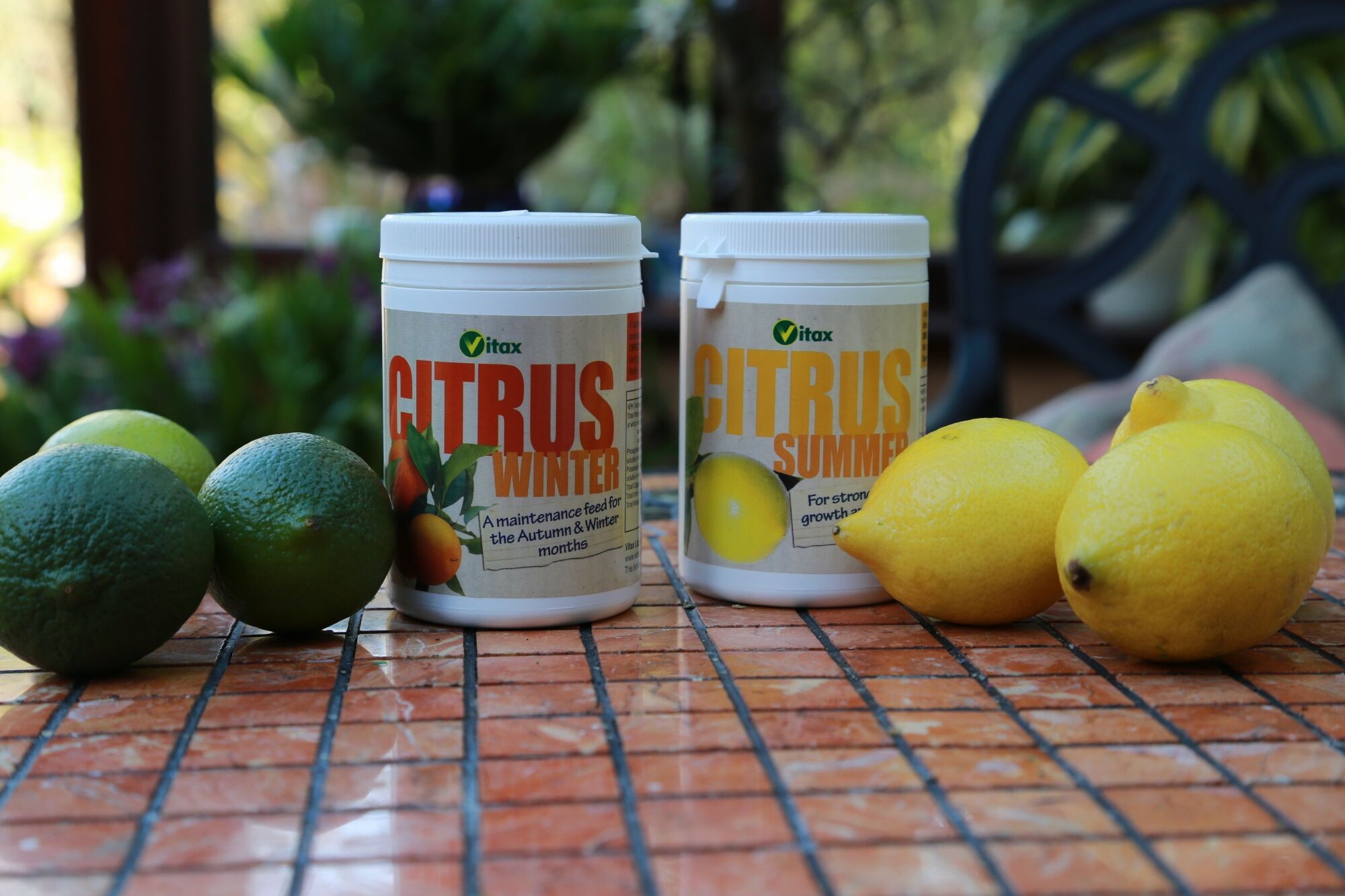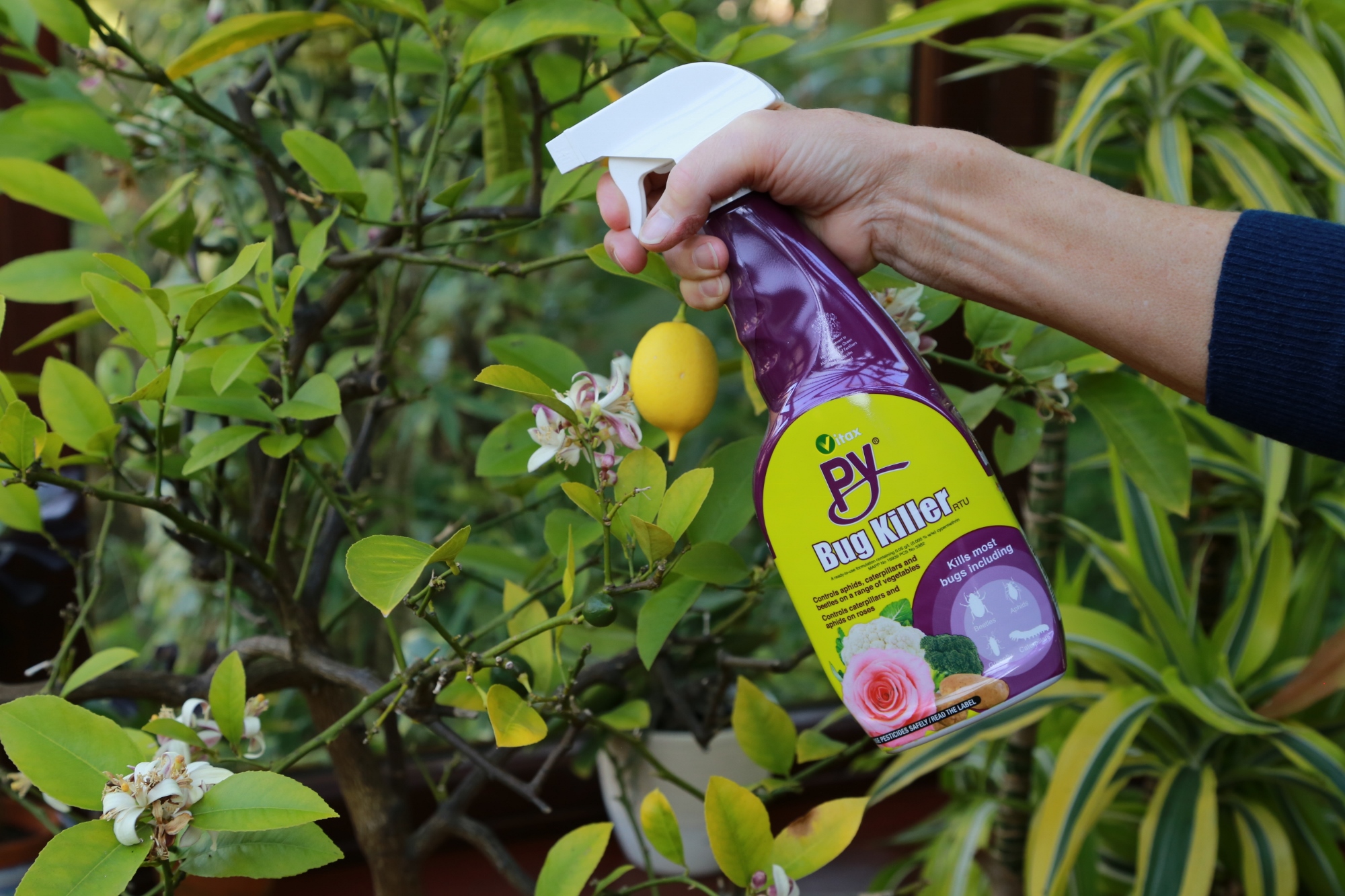How to Keep Citrus Healthy
Citrus are rewarding plants to grow; evergreens with wonderfully scented flowers and the promise of delicious fruits. Being able to pick your own fragrant, unwaxed lemon, bursting with juice and natural oils, which will add its zest to a gin and tonic, is just the sort of thing most gardener’s dreams are made of. However citrus, although easy to grow, can be a little unpredictable and do not always follow the same growth pattern every year, so if your lemon does not follow the rule book, do not be put off.
 Citrus, especially most varieties of lemon, are tough plants that will even stand a few degrees of frost. However they are not hardy enough to be grown outside, except in the mildest areas and in very favoured locations. In most parts they need the protection of a cool conservatory or greenhouse over winter, but they dislike the hot, dry atmosphere of the inside of a house.
Citrus, especially most varieties of lemon, are tough plants that will even stand a few degrees of frost. However they are not hardy enough to be grown outside, except in the mildest areas and in very favoured locations. In most parts they need the protection of a cool conservatory or greenhouse over winter, but they dislike the hot, dry atmosphere of the inside of a house.
Most citrus flower and bear fruit during the winter months. In summer they put on leaf and stem growth, but they also flower, producing young fruits which mature into winter. This pattern is very irregular, but it is assisted by providing them with the right nutrients for the time of year. Vitax produce both a summer and winter fertiliser to keep your citrus growing and fruiting at their best.
 From late spring most citrus, especially lemons, will be happier out on the patio. Conservatories, even north facing ones can get unbearably hot in summer, so your plant will be happier outside and any flowers stand a better chance of pollination. This is the main growing season, so water regularly and feed with Vitax Citrus Summer. This is a high nitrogen soluble feed which promotes growth, maintains healthy foliage colour and prevents embryo fruits from maturing prematurely, or dropping.
From late spring most citrus, especially lemons, will be happier out on the patio. Conservatories, even north facing ones can get unbearably hot in summer, so your plant will be happier outside and any flowers stand a better chance of pollination. This is the main growing season, so water regularly and feed with Vitax Citrus Summer. This is a high nitrogen soluble feed which promotes growth, maintains healthy foliage colour and prevents embryo fruits from maturing prematurely, or dropping.
Keep an eye open for spider mite and scale insects on the foliage. Scale insect usually results in sooty mould; a black deposit on the upper surface of the leaves. This is a mould that develops in the sticky secretions of the scale which are cunningly hidden along the midrib of the undersides of the leaves. These can be controlled by spraying with either Vitax Plant Pest killer or Py Bug Killer. Both are contact insecticides so it is important to wet both the upper and undersides of the leaves.
 In late summer move your citrus plants indoors. A lemon or orange will be very happy in your conservatory over winter. If the weather is extremely cold keep the compost on the dry side, but make sure you give it enough water when temperatures rise. Feed occasionally with Vitax Citrus winter. This is a balanced fertiliser which maintains steady growth, keeps the leaves green and helps to prevent leaf drop, which commonly happens when plants are moved indoors.
In late summer move your citrus plants indoors. A lemon or orange will be very happy in your conservatory over winter. If the weather is extremely cold keep the compost on the dry side, but make sure you give it enough water when temperatures rise. Feed occasionally with Vitax Citrus winter. This is a balanced fertiliser which maintains steady growth, keeps the leaves green and helps to prevent leaf drop, which commonly happens when plants are moved indoors.
Again, keep an eye open for insect pests and treat accordingly. Spider mite is a common problem if the atmosphere is dry. It shows itself in the form of discoloured leaves which have a slightly gritty feel to them. Misting the foliage regularly with water helps reduce the chances of spider mite.
If you need to repot your citrus do so in spring using Vitax John Innes No.3 compost. Even if you are not repotting it is a good idea to scrape away the surface of the compost in spring and replenish with some fresh John Innes No.3, before feeding with Vitax Summer Citrus feed.
Andy McIndoe for Vitax
Find a stockist near you
To check if the product you require is in stock, please contact the retailer prior to visiting.
Your login details have been used by another user or machine. Login details can only be used once at any one time so you have therefore automatically been logged out. Please contact your sites administrator if you believe this other user or machine has unauthorised access.












